Innovation in cities
As we saw with COP21, an international agreement between countries is essential in order to adapt to climate change. But the transition also takes place at a smaller scale.
C40 Cities is a network of over 80 megacities committed to addressing climate change. They contribute efficiently in reducing greenhouse gas (GHG) emissions, and adapting to climate risks. Their objective is to limit temperature increase to 1.5°C. The C40 Cities network helps them exchange knowledge and advice.
The Compact of Mayors is also an organization that includes 400 cities committed to reducing their GHG emissions. The following map shows their potential for reducing GHG emissions in 2030 in MtCO2e.
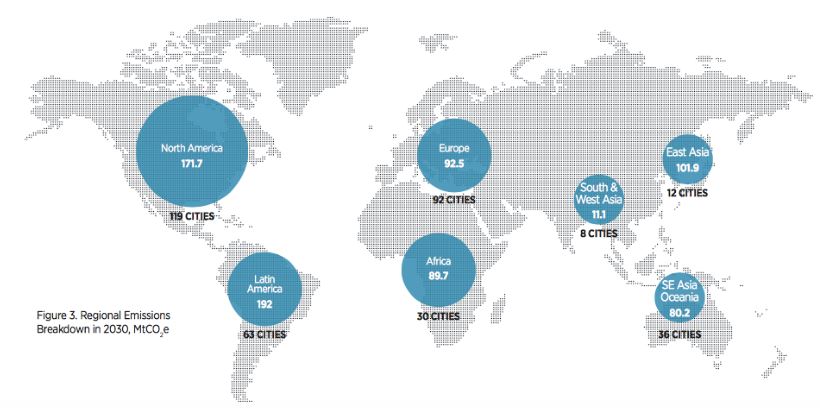
Each city innovates differently. Paris has decided to promote creativity with Réinventer Paris, a call for innovative urban projects to imagine and build the city of tomorrow.
Of the 358 projects submitted, the winners will be able to purchase or rent the terrains, (divided into 23 sites), to carry out their projects.
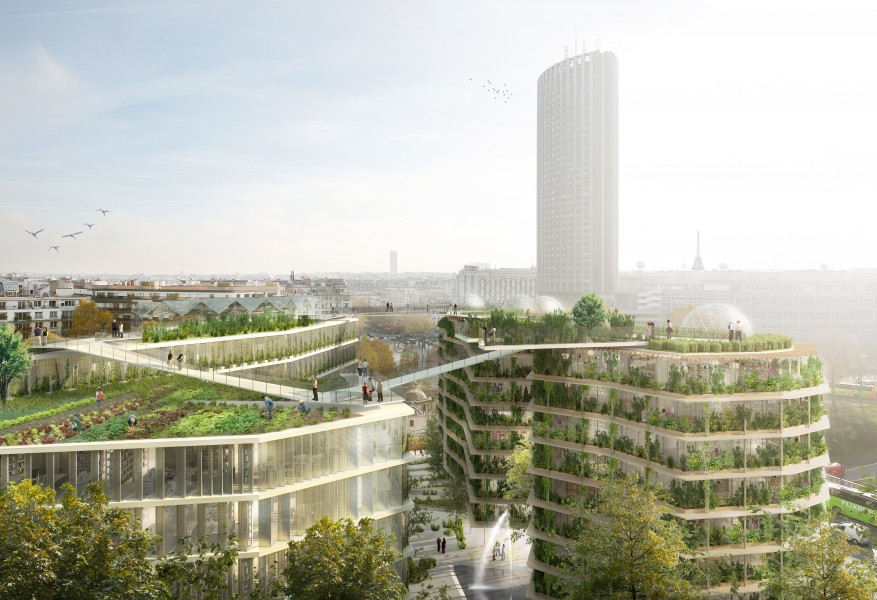
Toronto also has ambitious goals. One of its objectives is to reduce GHG emissions by 80% in 2050 compared with 1990 emissions. This represents a challenge for the energy sector, which accounts for 53% of carbon emissions in the city.
However, mega-cities aren’t the only ones to innovate, on the contrary! Loos-en-Gohelle is, and has been for the past 15 years, a “pilot city” for sustainable development. Their goal is to change the current development model by learning from the past.
They work hand in hand with the inhabitants and many initiatives have been tested such as eco-construction or eco-mobility. The results produced by this project can inspire other cities and create local ecosystems!

Renewable Energy vs Fossil Fuels
In May, over 30,000 people around the world took action to Break Free from fossil fuels by keeping them in the ground and building a new, renewable economy. Their actions were able to disrupt several fossil fuel projects!
You’ve probably heard of Divestment, an international movement to take action by divesting from fossil fuels, as is doing Copenhagen. Find out how to divest in your part of the world.
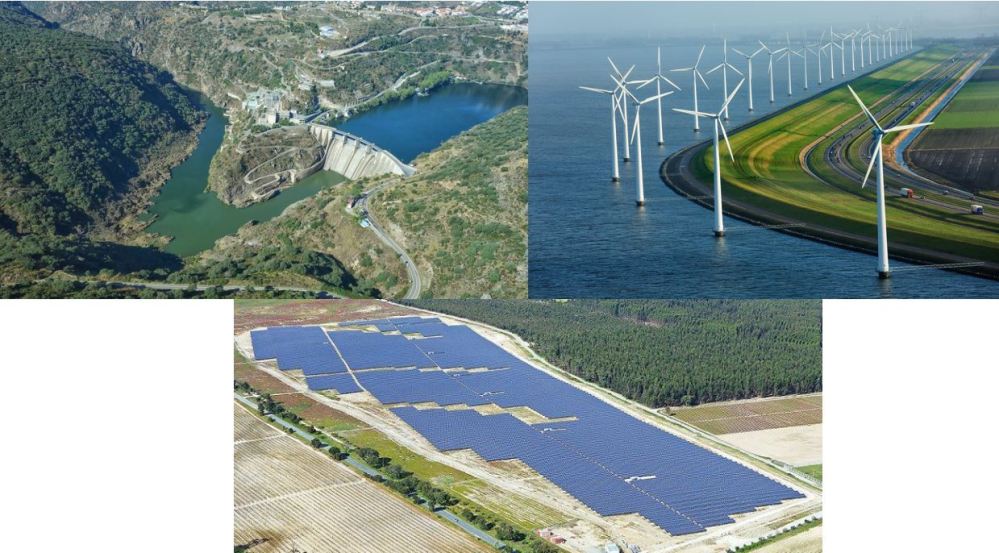
Portugal ran on renewable energy only for 4 days! Between 7 and 11 May 2016, (107 hours), the country went without using fossil fuels for its electricity consumption.
Germany has also accomplished several feats in terms of power production. On 8 May 2016, the country produced so much energy from renewable sources (over 90%), that consumers were payed to use it!
And in July 2015, Danemark (yes, again :p) produced 140% of its electricity needs with wind power only!
Costa Rica is also setting a new world record!
If you’re interested, this article helps better understand the progression of renewable energy in the past decade.
When you don’t have access to electricity…
Unfortunately, in 2012, 15% of global population still didn’t have access to elctricity…
Tristan Kochoyan decided to take action by launching Power:On, an organization that brings power to the poorest villages in Benin, one of the less developed countries according to the UN. Their goal is to use solar power to produce electricity 24 hours a day.
Others bet on human mechanical energy, like Manoj Bharvaga, Indian philantropic billionaire, creator of the Free Electric bike. Pedal for 1 hour and you can provide enough electrical power to a household for 24 hours. This is revolutionary compared to a standard bike generator, and it costs only US$250 🙂
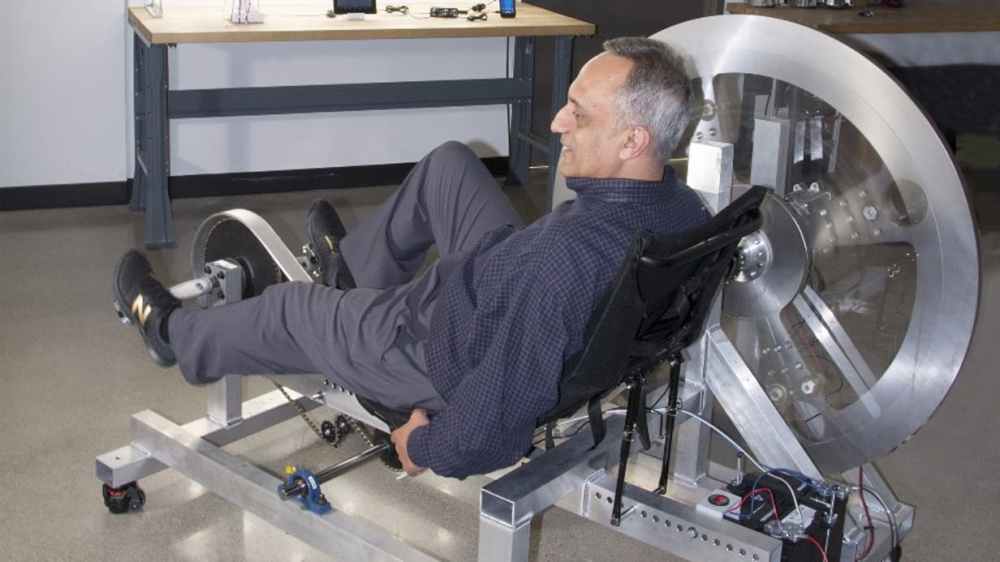
Producing 100% renewable energy is one thing. However, the challenge is also to reduce our power consumption.
This is why Grameen Intel Social Business invented the Eco-cooler, an air conditioner that works without any electricity. It was created for Bangladesh, a country where the temperature can reach 45°C (113°F).
The Eco-cooler can lower the temperature by 5°C in a couple of minutes, by using a simple system of pressure difference. The necessary material includes a wooden plank and a few plastic bottles.
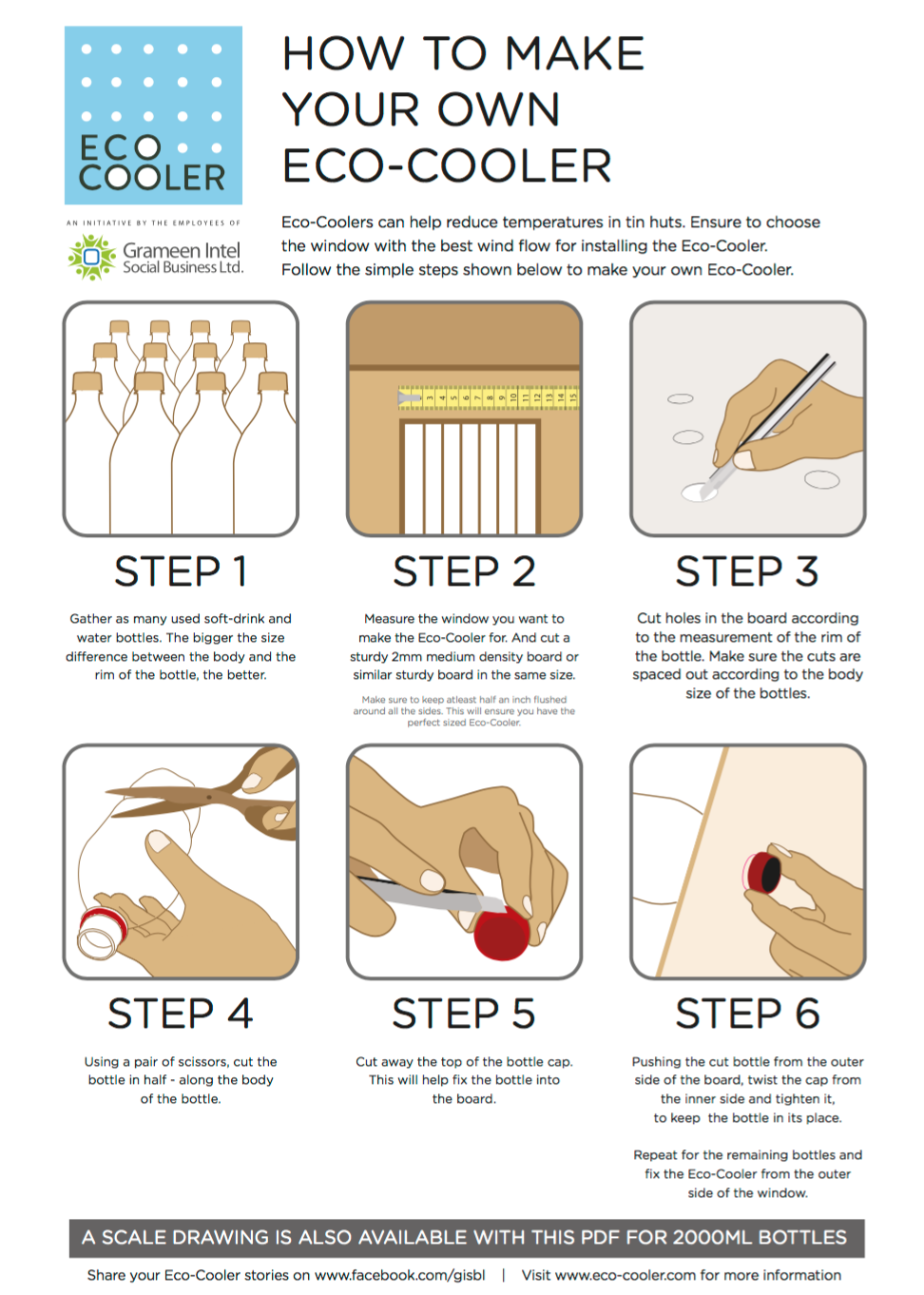
I hope this article brought a little optimism and sunshine to your day 🙂 If you liked it, please don’t hesitate to comment and/or share!
“Everything requires energy. Energy is the great equalizer.” – Manoj Bharvaga